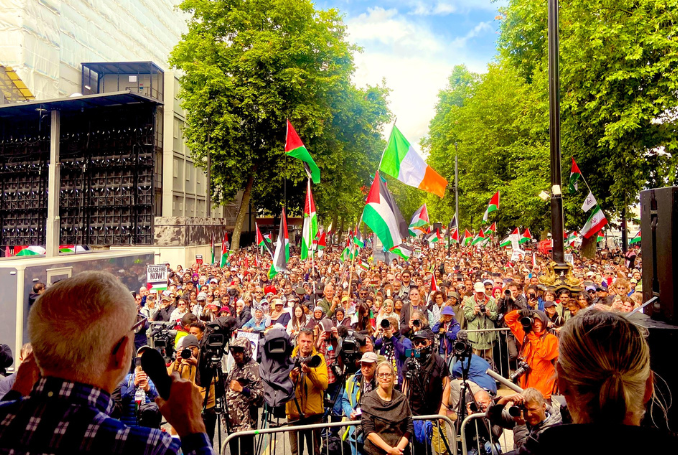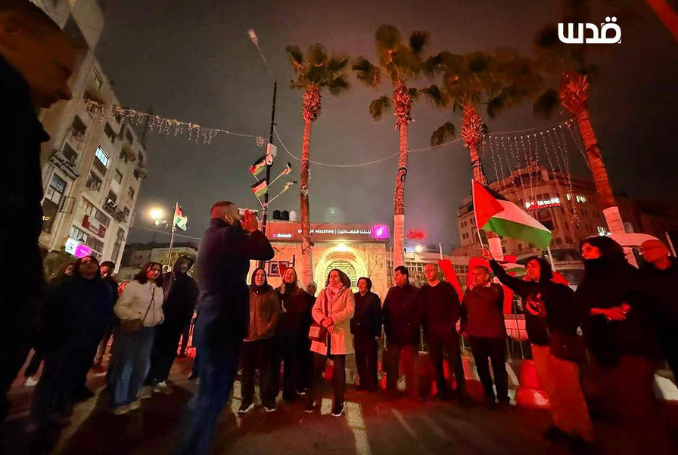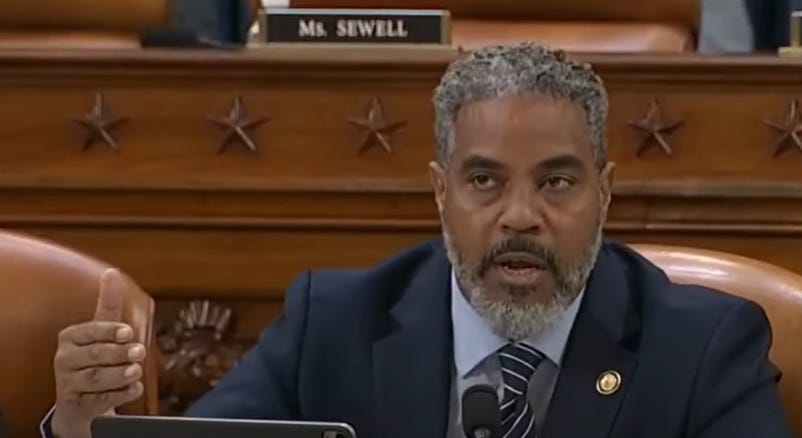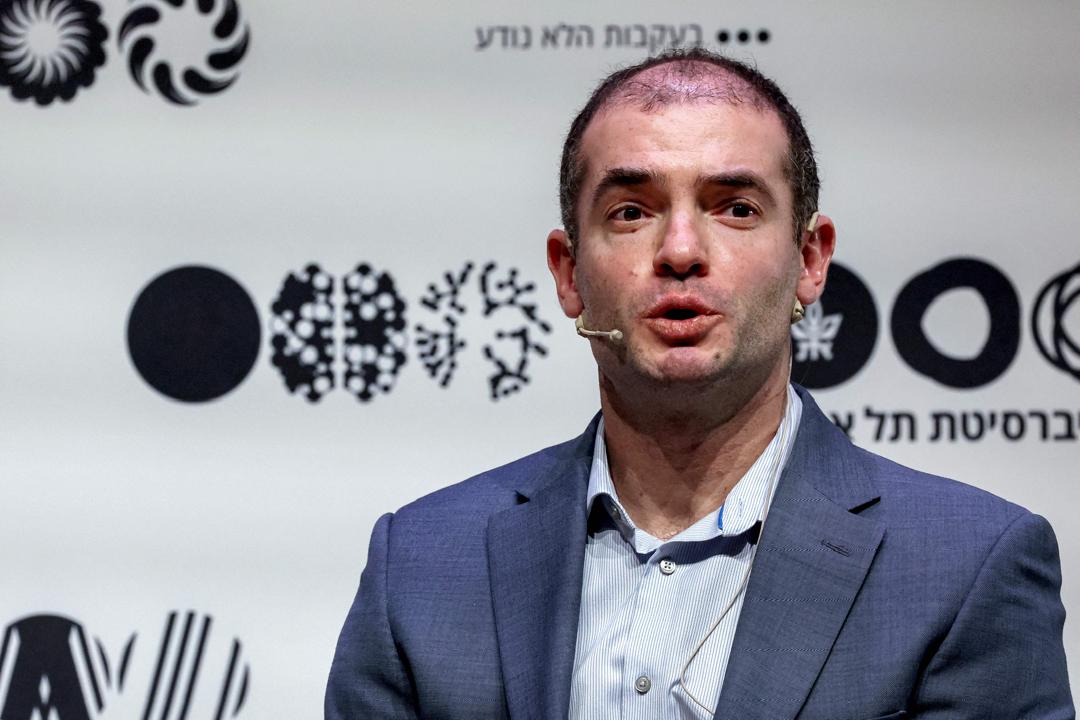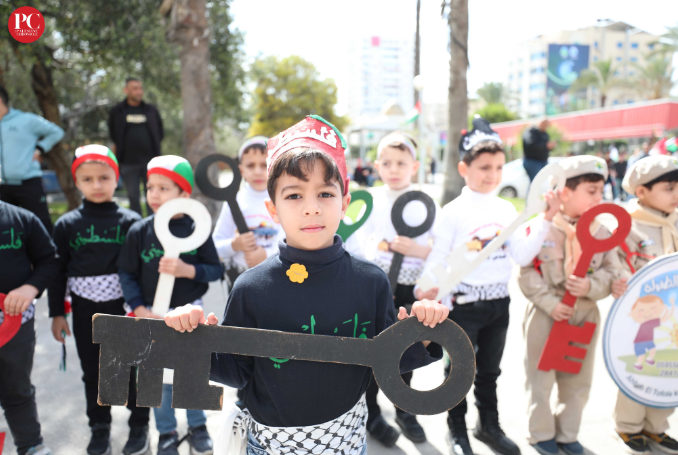
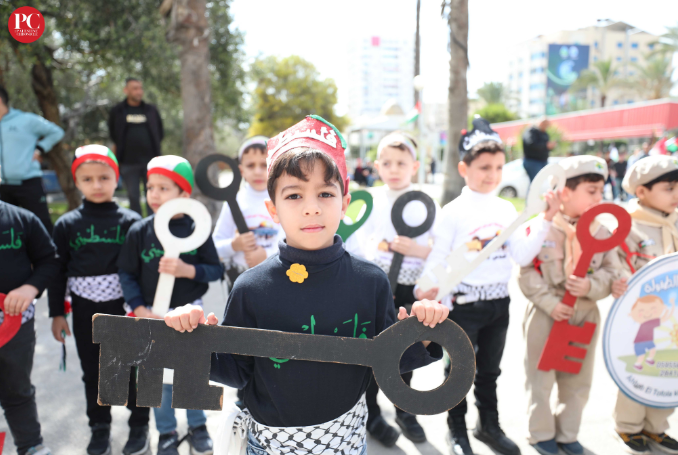
By Benay Blend
Eunice Paiva’s body is gone, but her spirit is still here, much like others, including Refaat Alareer and Wafa Aludaini, who passed on their legacy to others.
On March 30, 2018, Palestinians in Gaza began a series of weekly demonstrations along the separation barrier. Named the Great March of Return, the gatherings resulted in a large number of deaths and injuries from Israeli snipers, which drew attention from the media.
Moreover, March 30 is significant because it marks the 1976 general strike and uprisings against ongoing Israeli confiscations. In response, Zionist forces attacked the demonstrators, killing six, injuring 49, and detaining over 300 others.
During the Return March, mantras such as “existence is resistance” gained traction, signifying that the mere presence of Palestinians on the land was an act of resistance against erasure.
Since October 7, 2023, existence for Palestinians in Gaza, as well as historic Palestine, has become more precarious as they confront genocide by the Israeli military.
As a well-known Palestinian journalist of the past century, Ghassan Kanafani believed that cultural resistance was a revolutionary act. Yet, as Steven Salaita notes, when seeking to make sense of Kanafani, it is best to abandon “discrete ontological and intellectual categories altogether,” or perhaps consider them “dynamic and interactive” (“Introduction,” Ghassan Kanafani, On Zionist Literature, 2022, p. xvi).
In this way, nonviolent resistance such as the Boycott, Divestment and Sanctions movement and armed resistance are not paired in an either/or relationship, but rather travel along similar routes toward the goal of liberation.
Despite the current genocide in Gaza, there is still a segment of the solidarity movement who want to dictate to the oppressed which forms of resistance they should use.
As Omar Zahzah notes:
“There is a problematic, obsessive iteration of ‘nonviolence’ within the broader Palestine solidarity movement that dehumanizes Palestinians, normalizes Zionism, and ultimately utilizes racist and colonial frameworks to advance the notion that the means of Palestinian resistance are more troubling than the reality of Zionist settler-colonialism.”
In turn, Zahzah questions the solidarity of these activists. “When the presence of a militarized, genocidal settler-colonial entity bothers individuals less than the means by which the colonized resist, it’s probably time to rethink one’s ‘solidarity.’”
One year after October 7, 2023, then-president of Jewish Voice for Peace (JVP), Stephanie Fox, published an article in Time Magazine, reproduced on the JVP website, that explained her position on the horrors of the previous year.
As Yom Kippur approaches, she lamented, her mind was filled with images of children murdered by “Israel’s” bombs. She explained that “the only way to challenge impunity is to be more relentless than their bombs.” Thus, she called for large, multinational rallies around the world to demand that governments halt weapons sales to Israel, divest from war profiteers, and adhere to the will of the people.
“Together, we are demanding accountability in place of impunity,” she concluded, and yet more than a year later this has not come to pass.
In the Brazilian film I’m Still Here, there are chilling moments that bear reflection on the world today.
The story of Rubens Paiva, a 41-year-old politician who was abducted in 1971 by agents of the regime, the film focuses on efforts by his wife, Eunice, to obtain information about his whereabouts and, finally, to bring about accountability for his death.
At one point, Eunice asks her lawyer how a person can disappear in the middle of the night in a country that has laws and a legal system. Though he doesn’t say it, the answer is that under fascist dictatorships, the legal system is dismantled, there is no justice and no accountability for crimes committed by the state.
Eventually, Eunice receives a revised death certificate confirming that her husband did not die of natural causes. When asked by an interviewer if it would not be better to focus on the present, she replies that families should be compensated for the crimes, but more importantly, the country needs to “clarify and judge all crimes committed during the dictatorship” because “if that doesn’t happen, they will continue to be committed with impunity.”
In a segment of Palestine Chronicle’s FloodgGate series, Ramzy Baroud and Romana Rubeo interviewed Richard Falk on the failure of international law to hold Israel accountable for its crimes. Because there is bipartisan support for the entity within the political establishment, he sees little chance for organized opposition from inside the US government.
Instead, Falk believes that the only chance for change comes from civil society, but that has triggered a crackdown similar to that in 1970s Brazil.
As for international law, Falk explains that the UN was created by former colonial powers, so that there might be “rhetorical recognition of the relevance of complicity but there isn’t any real implementation of it, nor could there be any enforcement here also because even if you find the US and its partners complicit and treat that as a violation of the Genocide Convention, there would be no way to enforce that decision.”
“In Brazil, the transition back to democracy was largely shaped by the military junta itself, which passed an amnesty law in 1979 shielding both dissidents and military officials from prosecution,” Ana Ionova and Jack Nicas.
Similarly, in the US, there is no culpability for a variety of official crimes. Despite all of the mass rallies, multitudes of phone calls and letters sent to Congress, and mass rallies there is still no accountability, not for pro-Palestinian activists who are being disappeared, not for arms sent to Israel that are used to bomb civilian populations in Gaza, and not for the bipartisan support for genocide by both political parties.
As Mjriam Abu Samra and Sara Trotam claim, the “colonial foundations of international law have neutralised the colonised-coloniser relation and drowned it into a cycle of bothsidesism that always favors the more powerful colonizer, who not only holds the sword against the neck but also owns the power over the narrative.” Thus, when the ICJ issued arrest warrants for Netanyahu and Gallant, they issued the same for Ismail Haniyeh and Yahya Sinwar, resistance leaders who were pursuing a legitimate struggle against the colonial state.
While the rallies that Fox endorses are useful, they are only one part of what is called for by solidarity. As Ramzy Baroud observes, the subject of “resistance” is a popular topic in many solidarity conversations. He continues:
“Many pro-Palestine individuals behave as if the word ‘resistance’ is a liability. Some may covertly support Palestinian resistance, but overtly ignore the issue altogether, as if it were not truly the single most important factor that has defeated all of Israel’s objectives—not just in Gaza, but in Lebanon as well.”
Baroud concedes there might be an argument for or against armed struggle on “moral or philosophical grounds,” or perhaps “for the sake of political expedience and pragmatism.” But to do so, he concludes, is a form of “intellectual dishonesty” because the Israeli army, by its own admission, “surrendered” in Gaza.
Baroud asserts that denying Palestinians the right to use all forms of resistance, including armed struggle, amounts to “denying them agency altogether and placing them squarely in the category of victims.”
Moreover, as Richard Falk explains, Palestinians have the right to armed defense under international law, thus October 7th and its aftermath of organized resistance is “entirely justifiable and overdue in this context.”
“If the Gaza war has taught us anything,” Baroud concludes, “it is that Gaza and the Palestinian people have proven to be the most central players in this ongoing tragedy.” When peace and justice prevail in Palestine, it will be orchestrated by the Palestinian people and their legacy of the tens of thousands of innocent civilians who were pulverized by the Israeli-US-Western war machine.”
Shortly after the release of I’m Still Here, Brazil’s Supreme Court decided to review whether to revoke the amnesty of the army officers accused of killing Rubens Paiva. In this case, the film served as a form of cultural resistance against the bothsidesism of the previous ruling “that treated perpetrators like their victims, torturers like the tortured,” much like the ICJ ruling against Netanyahu but also leaders of the resistance.
After coming to terms with her husband’s death, Eunice Paiva obtained a law degree, which she used to fight for the rights of the Indigenous. Her son Marcelo was reviving the history of Brazil while his mother was losing her memory. She died on December 13, 2018, after suffering from Alzheimer’s for many years.
Her body is gone but her spirit is still here, much like others, including Refaat Alareer and Wafa Aludaini, who passed on their legacy to others.

– Benay Blend earned her doctorate in American Studies from the University of New Mexico. Her scholarly works include Douglas Vakoch and Sam Mickey, Eds. (2017), “’Neither Homeland Nor Exile are Words’: ‘Situated Knowledge’ in the Works of Palestinian and Native American Writers”. She contributed this article to The Palestine Chronicle.


